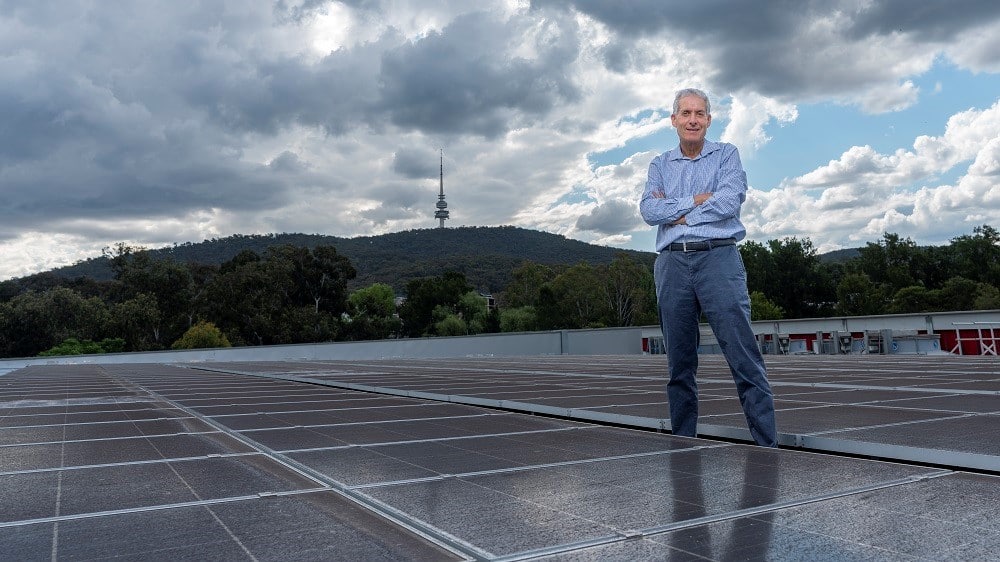Internationally renowned expert in solar energy, ANU’s Professor Andrew Blakers, has been awarded the 2023 Queen Elizabeth Prize for Engineering (QEPrize).
Professor Blakers from the ANU College of Engineering and Computing and Cybernetics won the world’s most prestigious engineering prize for his work transforming the efficiency of solar cell technology with the development of Passivated Emitter and Rear Cell (PERC) solar photovoltaic technology.
He has dedicated his more than four-decade-long career to developing solutions to climate change and accelerating the world and Australia’s transition to 100 per cent renewable energy.
“This is such an honour for me, and a testament to the many wonderful people I have worked with over the years. As a PhD student and postdoctoral researcher working on high efficiency silicon solar cells at UNSW in the 1980s, it was a fantasy to imagine that our work could have a global impact,” Professor Blakers said.
The PERC technology plays a key role in decarbonising energy grids in Australia and globally, underpinning exponential growth in high-performance low-cost solar electricity.
Solar power generation costs fell by more than 80 per cent in the last decade through PERC, making solar the cheapest source of electricity in most countries.
Professor Blakers intends to use his platform as a QEPrize recipient to highlight the importance of solar adoption in addressing global warming.
“Solar energy is enormously abundant nearly everywhere. Silicon solar cells allow clean and affordable electrification of energy-poor rural areas across Asia, Africa and the Americas,” he said.
“This energy source creates large opportunities for billions of people to improve their economic, educational and social positions without the destruction caused by fossil fuels.
“On current growth rates, silicon solar cells will have more installed power generation capacity in 2031 than coal, gas, nuclear and hydro combined.”
Professor Blakers hopes to inspire the incoming generation of engineers who, he said, are equipped with the creativity, curiosity, and drive required to tackle society’s most important challenges, including climate change.
“We have all the technology needed to eliminate fossil fuel use by 2040, and reduce 80 per cent of global greenhouse emissions, so let’s get on with it,” he said.
The QEPrize annually awards engineers from across the world who have delivered innovative solutions to some of the world’s greatest challenges.
A previous recipient of the Prize is the inventor of the World Wide Web, Sir Tim Berners-Lee.
Professor Blaker shares this prize with his former PhD supervisor Professor Martin Green from UNSW Sydney, Dr Aihua Wang, and Dr Jianhua Zhao, who, he said, “have made major contributions to solar energy over many decades”.
They will receive their award at a ceremony in London later this year.
To learn more about the award, visit the QEPrize website.
Get all the latest Canberra news, sport, entertainment, lifestyle, competitions and more delivered straight to your inbox with the Canberra Daily Daily Newsletter. Sign up here.



